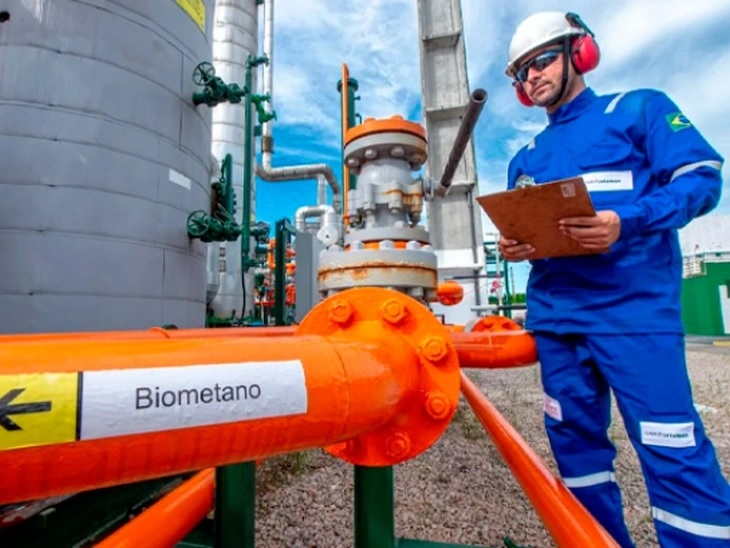
 Biomethane
Biomethane
City will be the first in Brazil to use this renewable source for urban supply. Sector expansion could reduce Brazil's methane emissions by one-third by 2030.
T&B Petroleum/Press Office Secretariat of Agriculture and Supply
In June, the city of Presidente Prudente began construction on an urban biomethane gas supply project, becoming the first municipality in Brazil to use this renewable source for urban distribution. The initiative aims to boost the energy transition and reduce greenhouse gas emissions.
A R$12 million investment, led by the company Nécta Gás Natural, is enabling the installation of the first gas pipeline dedicated to transporting biomethane. With a 40-kilometer network within the city, the project is expected to serve 5,000 people and 58 businesses. The gas will be supplied by the Cocal Plant, located in the nearby city of Narandiba.
"With this pioneering project in Presidente Prudente, São Paulo further reinforces its commitment to sustainability and the energy transition. This is the beginning of a turning point on this issue, and we hope the initiative will encourage the use of renewable sources in the state of São Paulo and throughout the country," emphasized Guilherme Piai, Secretary of Agriculture and Supply.
Through the Agronomic Institute (IAC-Apta), the Secretariat of Agriculture and Supply is developing the Cana IAC Program, which celebrated its 30th anniversary in 2024. The program has played a key role in developing and improving sugarcane cultivation in Brazil. Its major contributions include developing high-yield and climate-adaptable sugarcane varieties, creating technological packages for crop management, and supporting genetic improvement programs, all of which have boosted the sugar-energy sector in São Paulo.
Another significant step in São Paulo's energy transition came through a partnership between the Secretariat of Agriculture and Supply (SAA) and the Secretariat for the Environment, Infrastructure, and Logistics (SEMIL), via the Environmental Company of the State of São Paulo (CETESB). In 2024, they introduced an environmental licensing procedure for biofuel production plants in the sugar-energy sector.
“Caipira Pre-salt”
The state of São Paulo has approximately 5.5 million hectares dedicated to sugarcane cultivation and is Brazil’s largest producer, accounting for a major share of national production. Sugarcane residues such as bagasse, straw, vinasse, and filter cake are used to produce biogas. This biogas can then be purified into biomethane, which will now be distributed in Presidente Prudente.
The sector has long been recognized for its strategic importance—especially during the oil crisis of the 1970s, when ethanol from sugarcane helped reduce Brazil’s dependence on imported oil and encouraged the production and use of ethanol as an alternative fuel.
Biomethane Gas
Biomethane gas is a biofuel obtained by purifying biogas, which is produced through the decomposition of organic matter. After purification, biomethane closely resembles natural gas in composition and properties.
A 2024 study by FIESP and the São Paulo State Government showed that expanding biomethane production could create up to 20,000 jobs and reduce up to 16% of the state's projected emissions under its climate targets. Production could grow from 0.4 million to 6.4 million cubic meters per day, meeting 40% of the state’s natural gas demand.
Contact us